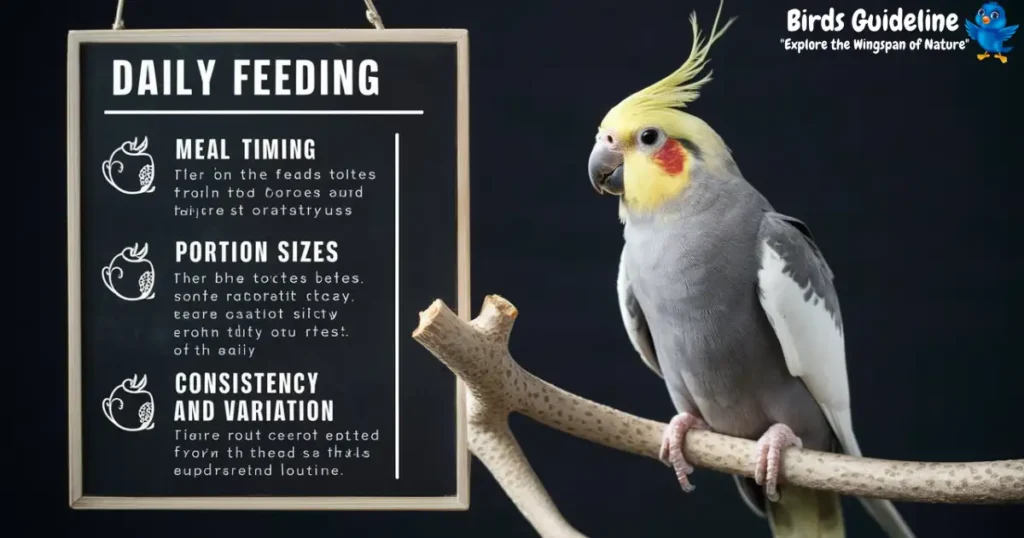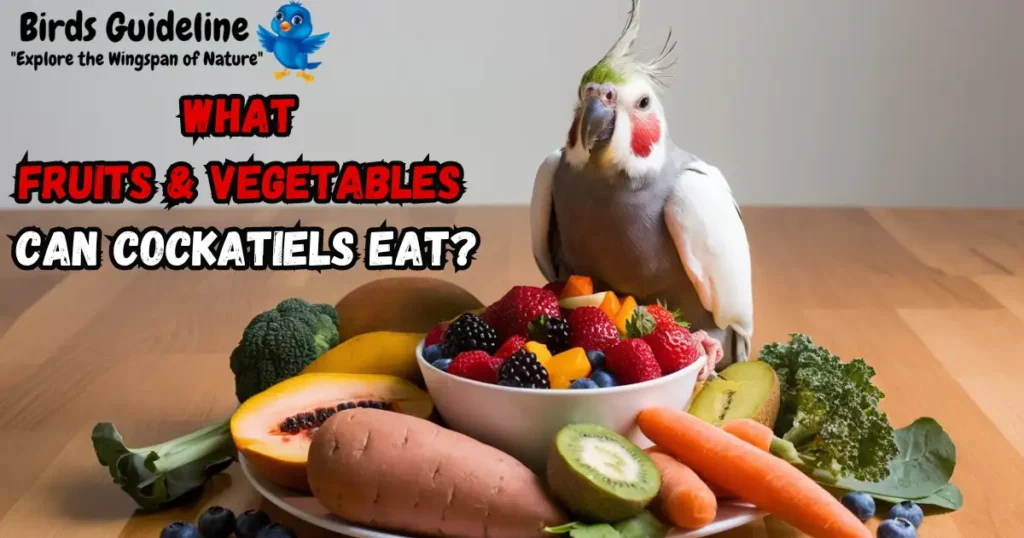Yes, cockatiels can eat corn. It is a healthy and nutritious addition to their diet.
Cockatiels, charming and popular pets among bird enthusiasts, thrive on a varied diet that mirrors their natural food preferences. Corn, with its natural sweetness, offers not only a taste that most cockatiels love but also provides essential nutrients beneficial to their health.
It’s abundant in carbohydrates, which are vital for energy, and contains vitamins and minerals that support overall well-being. Serving corn in moderation, alongside a balanced diet of seeds, fruits, and vegetables, guarantees your feathered friend receives a comprehensive spectrum of nutrients. This approach to feeding not only keeps your cockatiel healthy but also makes mealtimes more enjoyable for them. Remember, always choose fresh or frozen corn over canned varieties to avoid added salts and preservatives.
Nutritional Benefits
Many pet owners wonder about the right foods for their feathered friends. Can cockatiels eat corn? Yes, they can! Corn is not only a tasty treat for these birds, but it also packs a punch with its nutritional benefits. This wholesome grain offers a range of vitamins, minerals, and fiber, making it a healthy addition to a cockatiel’s diet. Let’s discover what makes corn a beneficial choice for these charming birds.
Vitamins In Corn
Vitamins are crucial for maintaining good health in cockatiels, and corn is a great source of these nutrients. Here are some of the key vitamins found in corn:
- Vitamin A – Vital for skin, vision, and immune system health.
- Vitamin B – A group of several vitamins that aid in energy production and brain function.
- Vitamin C – An antioxidant that helps with repair and growth of body tissues.
These vitamins play an essential role in helping your cockatiel stay active and healthy. For example, Vitamin A helps keep their feathers glossy and their eyes sparkling. On the other hand, B vitamins are like little energy boosters, helping your bird stay active and happy. And Vitamin C, though not as crucial for birds as it is for humans, still offers benefits in healing and vitality.
Minerals In Corn
Minerals are just as important as vitamins for a balanced cockatiel diet. Corn offers a variety of these essential nutrients:
| Mineral | Benefit |
|---|---|
| Iron | Supports blood health and prevents anemia. |
| Zinc | Crucial for a strong immune system and wound healing. |
| Magnesium | Helps with muscle and nerve function. |
| Phosphorus | Aids in forming strong bones and teeth. |
These minerals contribute to a myriad of bodily functions. Iron, for instance, prevents fatigue by helping in the formation of hemoglobin. Zinc boosts the immune response, keeping your cockatiel resilient against diseases. Magnesium helps that your bird’s tiny heart beats steadily, and phosphorus works to strengthen their skeletal system.
Fiber In Corn
While not as flashy as vitamins and minerals, fiber is a cornerstone of digestive health. Corn is a good source of this dietary component, offering benefits such as:
- Helping to regulate bowel movements.
- Contributing to a feeling of fullness, preventing overeating.
- Supporting a healthy gut by promoting the growth of beneficial bacteria.
For cockatiels, fiber in corn can prevent digestive issues that are common in pet birds. It helps that their gastrointestinal tract remains clear and functioning properly. This is key to avoiding health issues and keeping your cockatiel chirpy and content. By including corn in their diet, you’re not just giving them a treat, but also helping them stay in top-notch condition.
Safe Serving Methods
Many bird enthusiasts often wonder about the variety of foods their feathered friends can enjoy. Cockatiels are no exception, and they too relish a diverse diet. Corn is a common question among cockatiel owners. Yes, these birds can eat corn, but it’s important to serve it correctly. Safe serving methods guarantee your cockatiel gets the nutrition without any health risks. Let’s look at the best ways to offer corn to these delightful birds.
Fresh Corn
When it comes to fresh corn, cockatiels can safely enjoy it, but it should be served properly. Here are some key points for offering fresh corn to your pet:
- Wash the corn thoroughly to remove pesticides.
- Offer small pieces to prevent choking.
- Remove any husks and silk before serving.
Additionally, fresh corn provides essential vitamins and minerals beneficial for your bird’s health. Below is a table highlighting the nutritional value of fresh corn:
| Nutrient | Benefit |
|---|---|
| Vitamin C | Boosts immune system |
| Vitamin B | Supports nervous system |
| Antioxidants | Combats free radicals |
| Fiber | Aids digestion |
Remember, fresh corn should be a treat and not replace a balanced diet. Always monitor your cockatiel to make sure they eat it without any issues.
Cooked Corn
Cooked corn is another safe option for cockatiels, but it must be prepared without added salt, butter, or spices. Here’s how to serve cooked corn:
- Cook until soft, but avoid overcooking as it can lose nutrients.
- Let it cool down to room temperature before offering.
- Chop into bite-sized pieces suitable for your bird.
Cooked corn is easier for cockatiels to digest and can be a warm treat during colder months. It’s a good source of carbohydrates for energy. However, moderation is key. Overfeeding can lead to obesity. Make sure cooked corn remains a small part of a varied diet. Always provide fresh water after serving corn to help with digestion.
Potential Risks
Many bird lovers wonder if cockatiels can eat corn. The answer is yes, but there are some risks. Corn can be a tasty treat for your feathered friend. Yet, it’s vital to know about the potential dangers. This includes allergic reactions and digestive issues. Let’s dive into these risks to keep your cockatiel healthy and happy.
Allergic Reactions
Just like people, birds can have allergies too. Corn might cause an allergic reaction in some cockatiels. Signs of an allergy include:
- Sneezing or coughing
- Difficulty breathing
- Itchy skin or feather plucking
If you see these signs, stop feeding corn and visit a vet. Here’s a table on what to do if you suspect an allergy:
| Action | Explanation |
|---|---|
| Stop Corn | Immediately remove corn from their diet. |
| Observe | Watch for any improvement in symptoms. |
| Vet Visit | Seek professional advice for proper diagnosis. |
Digestive Issues
Corn is safe in small amounts but can cause digestive problems. Too much corn might lead to:
- Upset stomach
- Diarrhea or constipation
To prevent these issues, follow these steps:
- Start with small amounts of corn.
- Watch how your cockatiel reacts.
- Adjust based on their response.
Remember, a balanced diet is key. Corn should only be a small part of their meals. Include other fruits and veggies for variety. This will help avoid digestive problems and keep your cockatiel healthy.
Feeding Frequency
Cockatiels enjoy a varied diet, and corn can be a tasty treat for them. But how often should these feathered friends indulge in this popular vegetable? Feeding frequency is crucial to maintain a balanced diet and support the health of your cockatiel. Let’s dive into the details of how regularly you can serve corn to your pet bird.
Understanding The Ideal Feeding Schedule For Cockatiels
Cockatiels thrive on a diet that mimics their natural food sources. While fresh vegetables, including corn, are beneficial, moderation is key. Offer corn to your cockatiel two to three times a week. This frequency supports a diet that is full of variety without causing nutritional imbalances.
Portion Control: How Much Corn To Feed
When introducing corn into your cockatiel’s diet, consider the portion size. A few kernels of corn are sufficient per serving. Overfeeding can lead to obesity and health issues. It’s best to think of corn as a supplement to their primary diet of high-quality pellets and seeds.
Preparing Corn For Your Cockatiel
Always make sure the corn is clean and safe for consumption. Fresh, cooked, or frozen-thawed corn is acceptable. Avoid salted or buttered popcorn and canned corn, which contain additives and preservatives that can harm your bird. Serve the corn at room temperature to prevent any digestive upset.
Signs Of Discomfort
Cockatiels can enjoy a variety of foods, including corn, which often becomes a favorite treat. However, it’s crucial to observe your feathered friend for any signs of discomfort after they indulge in new foods. Recognizing these signs early can help your cockatiel stays healthy and happy.
Signs Of Discomfort In Cockatiels After Eating Corn
Not all cockatiels will react the same way to corn. Watch for these indicators that something might be wrong:
- Change in droppings: Unusual color or consistency may suggest digestive issues.
- Reduced appetite: A sudden lack of interest in food can be a warning sign.
- Respiratory distress: Listen for any wheezing or difficulty in breathing.
- Lethargy: Less energy or enthusiasm for play is cause for concern.
- Feather plucking: This behavior often indicates stress or discomfort.
Monitor your cockatiel closely after introducing corn and consult a vet if you notice these symptoms.
What To Do If Your Cockatiel Shows Signs Of Discomfort
Act fast if you see any of the above signs:
- Remove corn: Stop offering corn to prevent further discomfort.
- Observe: Keep an eye on your pet for additional symptoms.
- Provide comfort: Establish a calm and stress-free environment.
- Seek professional help: A vet can offer tailored advice and treatment.
Early intervention can help your cockatiel recover quickly and maintain its well-being.
Preventative Measures To Avoid Discomfort
Prevention is better than cure. Here are some tips to keep your cockatiel comfortable:
- Introduce new foods gradually: Start with small amounts to assess tolerance.
- Balance their diet: Make sure a mix of seeds, pellets, and fresh produce.
- Regular check-ups: Routine vet visits can catch issues early.
- Watch for allergies: Be alert to any adverse reactions to specific foods.
By taking these steps, you can reduce the risk of discomfort and promote a healthy diet for your cockatiel.
Frequently Asked Questions
Yes, cockatiels can eat corn. It’s a nutritious snack, but serve it in moderation and make sure it’s fresh or properly cooked.
Yes, birds can eat raw corn on the cob. Many species enjoy it as part of their diet.
Yes, cockatiels can safely enjoy raw baby corn as part of their diet. It offers a nutritious snack, but always serve it in moderation. Make sure to wash it thoroughly before feeding to remove any potential pesticides or contaminants. This tasty treat can add variety to their meal routine.
Conclusion
To sum up, cockatiels can safely enjoy corn as part of their diverse diet. Whether served cooked or raw, this grain is a nutritious treat. Remember to offer it in moderation and alongside a variety of other foods to make sure your feathered friend gets all the necessary nutrients.
Happy feeding!


